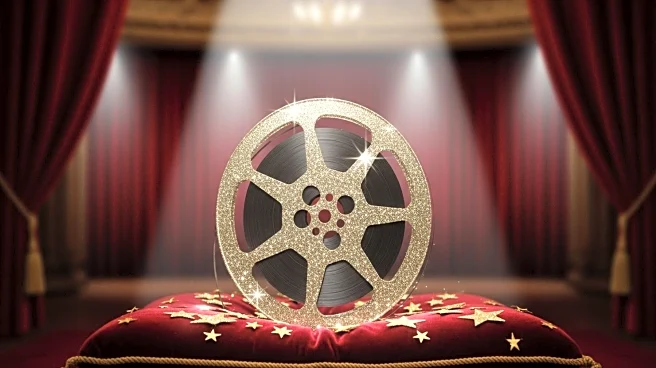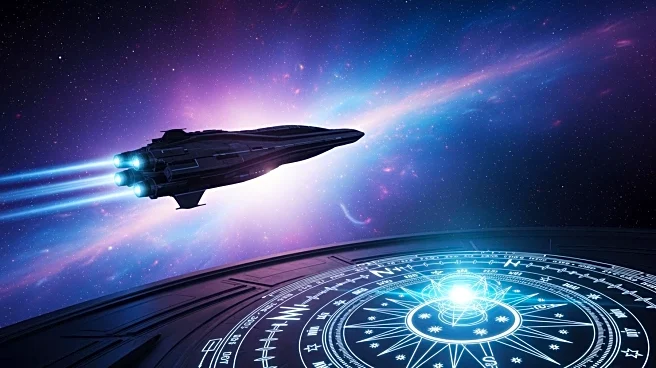What's Happening?
The Rocky Horror Picture Show, originally released 50 years ago, is celebrating its anniversary with a series of events and a 4K restored release. Initially, the film had a lukewarm reception, earning only $1 million and being pulled from theaters prematurely. However, it gained a cult following, leading to regular Saturday night showings where fans dress up and participate in interactive screenings. The film, a parody of 1930s sci-fi and horror B-movies, features characters like Brad and Janet, played by Barry Bostwick and Susan Sarandon, and Dr. Frank N. Furter, portrayed by Tim Curry. The anniversary celebrations include events in Los Angeles and the release of rare, unseen photos from the set.
Why It's Important?
The Rocky Horror Picture Show has become a cultural phenomenon, holding the record for the longest continually running film release. Its interactive screenings have fostered a unique community experience, influencing how audiences engage with films. The anniversary celebrations highlight the film's enduring impact on pop culture and its ability to bring people together through shared rituals and performances. The release of rare photos offers fans a deeper insight into the film's production and legacy, reinforcing its status as a beloved cult classic.
What's Next?
The 50th anniversary events in Los Angeles and the 4K restored release are expected to attract both longtime fans and new audiences, potentially expanding the film's cult following. The celebrations may inspire similar events in other cities, further cementing the film's place in cultural history. As the film continues to be screened, its influence on interactive cinema and fan culture is likely to persist, encouraging other filmmakers to explore similar audience engagement strategies.
Beyond the Headlines
The Rocky Horror Picture Show's success underscores the power of fan communities in reviving and sustaining media properties. Its interactive screenings challenge traditional cinema experiences, offering a participatory model that has influenced other cult films and live performances. The film's themes of identity and transformation resonate with audiences, contributing to its lasting appeal and relevance in discussions about gender and sexuality.









